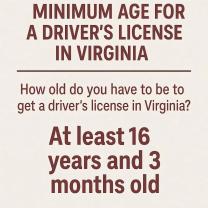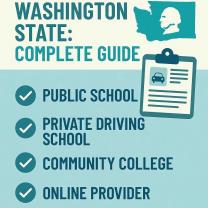What certifications do you need to become a firefighter?
The specific certifications required to become a firefighter can vary based on the jurisdiction, state, or country. However, there are certain standard certifications and qualifications that are commonly required for individuals pursuing a career as a firefighter. Here are some of the key certifications and credentials:
Firefighter I and II Certification:
- Firefighter I and II certifications are fundamental and often mandatory. These certifications cover the basic skills and knowledge needed for firefighting, including fire behavior, equipment usage, search and rescue techniques, and incident command.
Emergency Medical Technician (EMT) Certification:
- Many fire departments require firefighters to hold at least EMT-Basic (Emergency Medical Technician-Basic) certification. Some departments may prefer or require higher levels of EMT certification, such as Advanced EMT (AEMT) or Paramedic.
Hazardous Materials (HazMat) Certification:
- Given that firefighters often respond to incidents involving hazardous materials, a HazMat certification is crucial. This certification covers the identification, management, and mitigation of hazardous materials incidents.
Cardiopulmonary Resuscitation (CPR) Certification:
- CPR certification is a standard requirement for firefighters, emphasizing their ability to provide immediate life-saving measures in emergency situations.
Wildland Firefighter Certification:
- In areas prone to wildfires, firefighters may need additional certifications specific to wildland firefighting. These certifications cover techniques for managing and extinguishing fires in outdoor environments.
Fire Apparatus Driver/Operator Certification:
- Firefighters responsible for driving and operating fire apparatus, such as fire engines and trucks, may need specific certifications for vehicle operation.
Fire Officer Certification:
- As firefighters advance in their careers, they may pursue Fire Officer certifications. These certifications focus on leadership, incident command, and managerial skills within the fire service.
Rescue Technician Certification:
- Firefighters involved in specialized rescue operations, such as technical rope rescue, confined space rescue, or water rescue, may need additional certifications as rescue technicians.
National Incident Management System (NIMS) Certification:
- NIMS certifications, such as the Incident Command System (ICS) courses, are often required to ensure that firefighters can effectively operate within a standardized incident management structure during emergencies.
Physical Fitness Standards:
- While not a traditional certification, many fire departments have rigorous physical fitness standards that candidates must meet. Firefighter candidates often undergo physical agility tests as part of the hiring process.
State-specific Requirements:
- Depending on the state or jurisdiction, there may be additional certifications or requirements specific to that area. Always check with the local fire department or fire service agency for the most accurate and up-to-date information.
It's important to note that the requirements can vary, and some fire departments may have additional preferences or prerequisites. Prospective firefighters should check with the specific fire department where they plan to apply for the most accurate and current information on certification requirements. Additionally, many fire departments provide training academies or recruit schools where candidates can receive the necessary training and certifications.
Firefighter Certifications: Necessity and Advantages
1. Necessary Certifications:
The specific certifications required for becoming a firefighter vary depending on your location and fire department. However, some common ones include:
Essential:
- Firefighter I/II: These certifications provide foundational knowledge and skills in firefighting techniques, emergency medical response, hazardous materials awareness, and rescue operations.
- CPR/AED: Certification in cardiopulmonary resuscitation (CPR) and automated external defibrillator (AED) use is crucial for providing life-saving support during emergencies.
Additional (may be required or recommended):
- Hazardous Materials Operations (Hazmat): Equips firefighters to handle hazardous materials incidents safely and effectively.
- Technical Rescue: Provides specialized skills for rescuing people from various situations, including confined spaces, high angles, and swift water.
- Wildland Firefighting: Equips firefighters to combat wildfires and protect lives and property.
- Emergency Medical Technician (EMT) or Paramedic: These certifications allow firefighters to provide advanced medical care at emergency scenes.
2. Enhancing Career Prospects:
Specialized firefighter certifications offer several benefits:
- Increased job opportunities: Many fire departments prefer or even require applicants to have specific certifications, especially for specialized positions.
- Higher earning potential: Firefighters with specialized certifications often earn higher salaries than those with only basic certifications.
- Career advancement: Certifications demonstrate your commitment to continuous learning and professional development, increasing your chances of promotion or leadership positions.
- Expanded knowledge and skills: Specialized training equips you with valuable skills to handle diverse emergencies more effectively and confidently.
- Greater job satisfaction: Applying your specialized skills to help others and make a difference in challenging situations can lead to greater job satisfaction.
3. Prerequisites:
While specific requirements may vary, some general prerequisites for obtaining firefighter certifications include:
- Minimum age requirement: Typically 18 years old.
- High school diploma or equivalent: Some departments may require college degrees for specific positions.
- Physical fitness test: Demonstrates your ability to perform the physically demanding tasks of firefighting.
- Written examination: Tests your knowledge of firefighting principles and procedures.
- Background check and drug screening: Ensures you meet the department's character standards.
Some certifications may have additional prerequisites, such as prior experience as a volunteer firefighter or specific medical training.
It's essential to check with your local fire department or training academy for the exact requirements and available certifications in your area.













